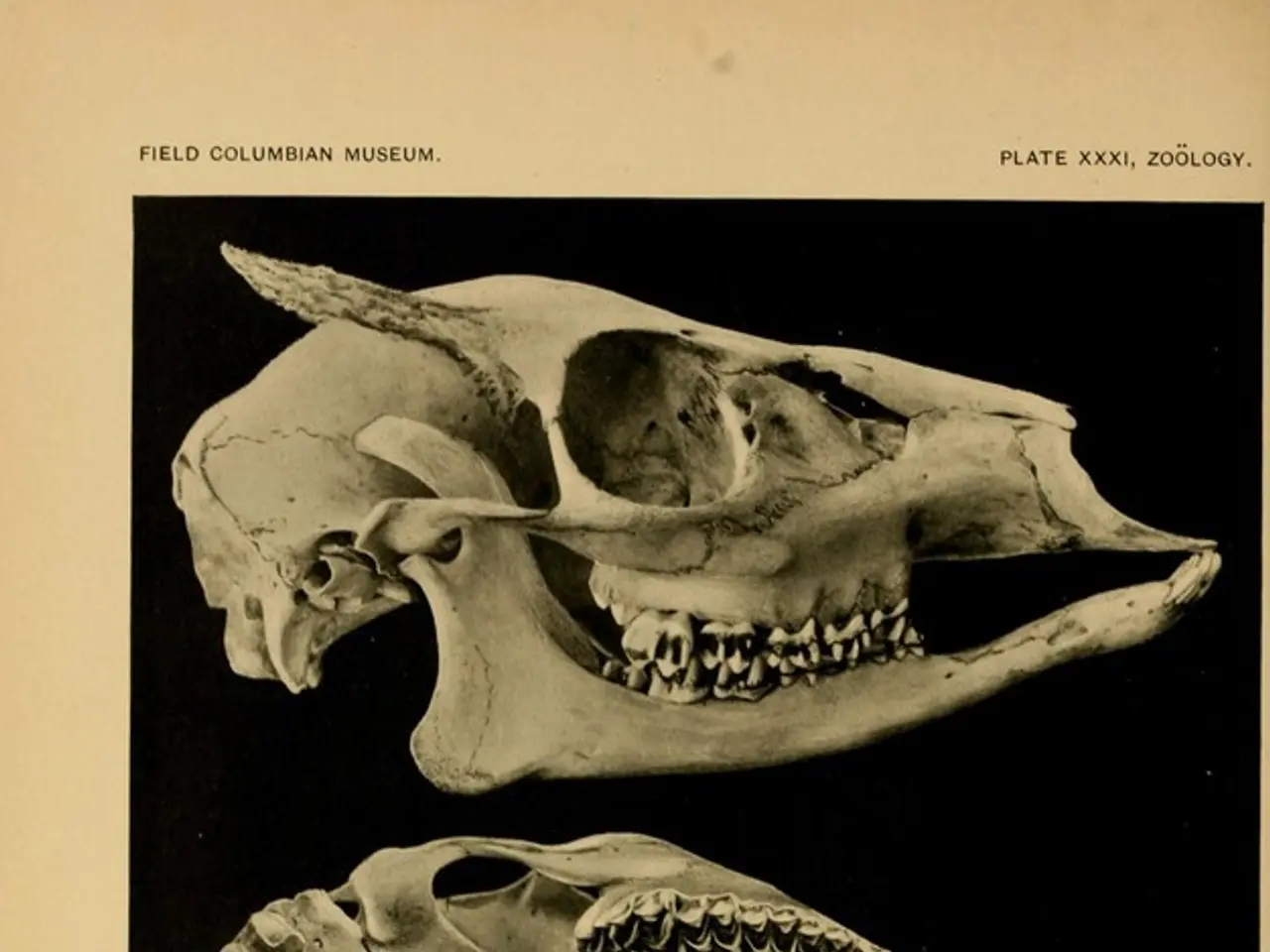Pandemic Accelerates Brain Aging According to Recent Research Findings
In a groundbreaking study published in the prestigious journal Nature, researchers have found that the isolation and ongoing uncertainty during lockdowns may have accelerated brain aging, particularly in men, older people, and those from deprived backgrounds. The study, conducted on participants of the UK Biobank study, a long-term project monitoring the health of middle-aged and older adults, revealed an average brain age gap of approximately 5.5 months after the pandemic.
The research, led by Dr Ali-Reza Mohammadi-Nejad, was surprising given the findings. The participants underwent brain scans before and after the pandemic, and the study found that the experience of the pandemic itself, including isolation and uncertainty, may have negatively impacted brain health.
The study's findings suggest that brain health is not only shaped by illness but also by how we live, connect, and cope under pressure. Joanna Konstantopoulou, a health psychologist, states that research shows chronic social disconnection and sustained stress can impair memory, emotional regulation, and executive functioning.
To lower the biological age accelerated by pandemic-related isolation and uncertainty, the study suggests focusing on strategies that reduce inflammation, support brain health, and promote cellular repair. Promising approaches include lifestyle changes such as adopting a gut-friendly diet rich in fiber and fermented foods to support microbiome diversity and reduce age-related inflammation.
Other methods based on recent research include managing stress and inflammation through techniques like mindfulness, social connection, and consistent routines. Emerging clinical therapies, such as therapeutic plasma exchange, have shown early clinical evidence of reducing biological age by removing pro-aging inflammatory proteins and rejuvenating the immune system.
While larger and longer studies are needed to confirm the long-term benefits of advanced therapies like plasma exchange, the study's findings underscore the importance of considering a gut-healthy diet, stress reduction, physical activity, social engagement, and emerging regenerative medicine options to potentially reverse some pandemic-driven biological aging effects.
Interestingly, women may have fared better due to behavioral and physiological differences, such as increased social contact, talking about experiences, and the hormone oestrogen's role in regulating the HPA axis and buffering stress effects.
The concept of importance in aging is shifting towards biological age, with brain health being a significant factor. Those infected with Covid-19 performed more poorly on cognitive tests after the pandemic and showed a drop in certain cognitive abilities. Studies in Nature Reviews Immunology highlight the biological role of oestrogen in buffering stress effects.
In summary, this study underscores the importance of maintaining a healthy lifestyle, engaging in stress-reducing activities, and considering emerging regenerative medicine options to potentially reverse some pandemic-driven biological aging effects. The findings emphasize the need to prioritize brain health and wellbeing, particularly in times of crisis.
- The stress and uncertainty of the pandemic, as revealed in the study published in Nature, may have caused brain aging, especially in men, older individuals, and those from disadvantaged backgrounds.
- Dr Ali-Reza Mohammadi-Nejad's research suggests that brain health is influenced not just by illness, but also by lifestyle, social connections, and coping mechanisms.
- Joanna Konstantopoulou, a health psychologist, noted that chronic social disconnection and prolonged stress can negatively impact memory, emotional regulation, and executive functioning.
- To counteract the accelerated biological aging caused by pandemic-related isolation and uncertainty, the study recommends strategies such as adopting a gut-friendly diet, mindfulness, social connection, and consistent routines.
- Therapies like therapeutic plasma exchange, which have shown early clinical evidence of reducing biological age by removing pro-aging inflammatory proteins and boosting the immune system, are emerging options for regenerative medicine.
- Women, thanks to behavioral and physiological differences, may have experienced fewer negative effects on brain aging during the pandemic, with increased social contact, hormone oestrogen's role in stress regulation, and better buffering of stress effects potentially benefiting their brain health.




